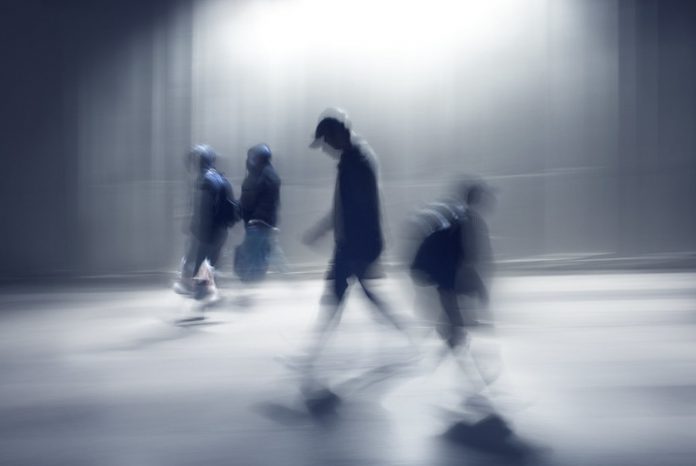I tied a naked guy up to a bedpost once. I had to go over
his instructions carefully before setting out, the door was unlocked, room
left dark, just enough bread crumbs.
Time seems to slow down at night.
If it was not for cold and snow, I would not realize that it is winter.
Time seems to stop altogether.
The history of cinema is cognate to the history
of trains. What they call sprouts in the photograph
are objects reaching out of frame, lured by the light.
I do not know my age.
My age does not seem to change.
I cannot imagine myself older than I am.
I remember how they leapt
for the bell rope in the church, how the weight
of the bell lofted them. I don’t remember
who they were or what they were married to.
Treat it as a double thickness, the lashing together of then
and now.
There are languages in which the future is behind,
the past ahead.
I hardly pay attention to the sequence of day and night.
They teach their children to walk backward
toward tombs of the ancestors.
Anything can be turned into a pinhole camera,
even this house if we covered every window and door,
just one well-timed pinprick− the long exposure.
Image: “White fence of White house” by DeusXFlorida, licensed under CC 2.0.
Judson Evans:
My earliest experiences with poetry were in response to time—the sense that ordinary experience was inadequate to upload the coded meanings of ongoing moments. The experiences that defied folding back into oblivion were the incomplete, unfulfilled ones. My first study and writing of haiku taught me what was important wasn’t the smooth capture of a consistent symmetrical moment, but a break/ a cut –kireji – to crack the moment apart, defy syntactic completion. But the poem “Time & Motion Studies: Diagnostic” was generated from an extension of an obsession with the psychology of time perception. I started reading philosophy and psychological studies on of temporality. Three years ago I rediscovered these journals and found where I’d copied out a questionnaire given to schizophrenic patients about their perception of time. This became the skeleton of “Time & Motion Studies: Diagnostic”. Between these anonymous responses to the questions, I revisited some of those incomplete, frustrated moments that cracked time open and exposed its chaotic, disruptive rewriting of our lives.
Judson Evans was chosen as an "Emerging Poet" by John Yau for The Academy of American Poets in 2007 and won the Philip Booth Poetry Prize from Salt Hill Review in 2013. His poems have appeared in Folio, Volt, Cutbank, and The Sugar House Review. Chalk Song, his collaborative book of poems inspired by paleolithic cave paintings (with poets Susan Berger-Jones & Gale Batchelder), will be published by Lily Poetry Press, Boston, in the fall of 2021.
Latest posts by Judson Evans
(see all)


